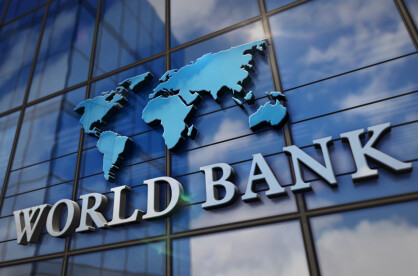The International Monetary Fund (IMF) has approved a 48-month extended arrangement under the Extended Fund Facility (EFF) of USD 3 billion to support Sri Lanka's economic policies and reforms, according to a statement released by the IMF on 21 March 2023. This comes as the country faces a severe economic crisis due to past policy missteps and economic shocks. The impact of the crisis on the Sri Lankan people, particularly the poor and vulnerable groups, has been a major concern for the IMF.
The immediate disbursement of about US$330 million from the EFF arrangement is expected to catalyze new external financing, including from the Asian Development Bank and the World Bank. The reform program supported under the EFF arrangement prioritizes an ambitious revenue-based fiscal consolidation, accompanied by stronger social safety nets, fiscal institutional reforms, and cost-recovery based energy pricing. The program also focuses on the restoration of public debt sustainability, a multi-pronged strategy to restore price stability and rebuild reserves, policies to safeguard financial sector stability, and structural reforms to address corruption vulnerabilities and enhance growth.
According to IMF, Sri Lanka has already started implementing these challenging policy actions, and emphasized on the importance of continuing the reform momentum under strong ownership by the authorities and the Sri Lankan people more broadly. As the economic impact of the reforms on the poor and vulnerable needs to be mitigated with appropriate measures. IMF further stated that the Sri Lankan authorities have committed to strengthening social safety nets, including through a minimum spending floor, well-targeted spending through a new Social Registry, and establishment of objective eligibility criteria.
Sri Lanka's public debt, at 128 percent of GDP as of end-2022, is unsustainable, and the country is in arrears to all its external creditors. IMF Board approval of assistance to Sri Lanka required assurances from official bilateral creditors that they will provide debt relief and/or financing to restore debt sustainability consistent with the program, as well as an assessment that the authorities are making good faith efforts to reach a collaborative agreement with private creditors. These requirements were met ahead of the Board meeting.
It is now important for the Sri Lankan authorities and creditors to closely coordinate and make swift progress towards a debt treatment that restores debt sustainability under the EFF-supported program. The authorities have committed to transparency and comparability of treatment for all external creditors, which should help facilitate this process.
Anti-corruption and governance reforms are a central pillar of the EFF-supported program, and they are indispensable to ensure the hard-won gains from the reforms benefit the Sri Lankan people. The authorities have committed to fundamentally improve public financial management and strengthen the anti-corruption legal framework in line with the United Nations Convention against Corruption. The IMF is conducting an in-depth governance diagnostic exercise, which will assess corruption and governance vulnerabilities in Sri Lanka and provide prioritized and sequenced recommendations.
Overall, the IMF's approval of the EFF arrangement is an important step towards the resolution of Sri Lanka's economic crisis. However, it is essential for the Sri Lankan government to continue implementing the necessary policy actions and for creditors to coordinate and make progress towards restoring debt sustainability. Anti-corruption and governance reforms are also critical to ensuring the long-term benefits of the reforms are realized by the Sri Lankan people.







